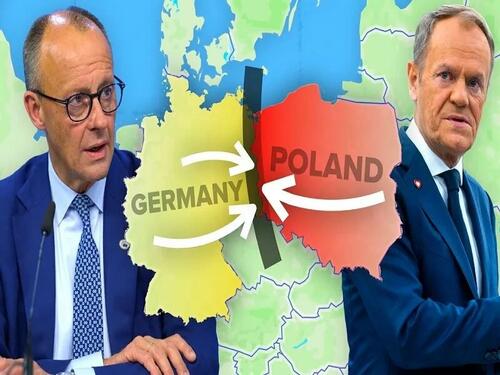Authored by Andrew Korybko via Substack,
Italy’s potential extradition of a Ukrainian suspect to Germany could lead to a highly publicized (and predictably politicized) trial that implicates Poland in this unprecedented attack on a fellow NATO ally.
The Wall Street Journal recently published a detailed piece about “The Nord Stream Investigation That’s Splintering Europe Over Ukraine”.
The gist is that Germany’s investigation into the Ukrainian trace, which is likely a preplanned red herring as argued here in early 2023, has already worsened ties with Poland after one of its judges refused to extradite a Ukrainian suspect.
It could soon worsen ties with Ukraine too if Italy soon extradites another one and a highly publicized (and predictably politicized) trial follows.
Germany’s Nord Stream investigation has placed it in a dilemma since it needs to pin the blame on someone for one of the largest sabotage/terrorist attacks in decades, yet it doesn’t dare look into the American trace that Pulitzer Prize-winning journalist Seymour Hersh drew attention to in early 2023. Accusing it of orchestrating this attack would risk punitive tariffs from Trump and could convince him to authorize the gradual transfer of some EUCOM infrastructure from Germany to neighboring rival Poland.
On that topic, the Ukrainian trace also conveniently implicates Poland, thus inflicting damage to its reputation.
The idea that this NATO ally played even just a passive role facilitating a third country’s attack against a “fellow” member, let alone might be trying to cover the aforesaid up after declining to extradite one of the suspects, could have real-world consequences.
Germany might rally other allies against supporting Poland in a hypothetical crisis with Russia, for example, and could even blame Poland for it.
Not only that, but Poland’s proposal for Germany to subsidize its arms industry as a form of World War II reparations could be opposed on the pretext that the long-term damage that Poland helped Ukraine inflict to Germany equals whatever Germany might have subsidized, therefore negating the request. Worsened bilateral relations could then give a boost to the conservative opposition, which dislikes Germany almost as much as it dislikes Russia, ahead of fall 2027’s next parliamentary elections.
Replacing the ruling liberal-globalist coalition, which could be achieved by allying with the populist-nationalist opposition upon complying with their demand that senior party leaders resign, would strengthen the challenge that Poland poses to German influence in the region. That’s because the Right would control the presidency and parliament, thus breaking the deadlock that’s been in place since the current coalition obtained power in December 2023 and enabling more effective policy implementation.
This outcome could still occur even without a highly publicized German trial implicating Poland in the Nord Stream attack, but it’ll make it much more likely if that happens. In such a scenario, already fractious EU and NATO unity might further weaken, with this possibly hamstringing cooperation against Russia through the “military Schengen” and other emerging multilateral frameworks. A security dilemma could also develop between them amidst their mutual adversarial perceptions and arms buildups.
Observers should remember that this is possible solely due to Germany refusing to investigate the American trace in the Nord Stream attack, instead opting to look into the Ukrainian one that also involves Poland. The public demands that someone be blamed for the spike in costs brought about by Germany being cut off from cheap and reliable Russian gas. The elite therefore decided to pin the blame on them, but it’s unclear whether they thought through the consequences touched upon in this analysis.
Loading recommendations...
